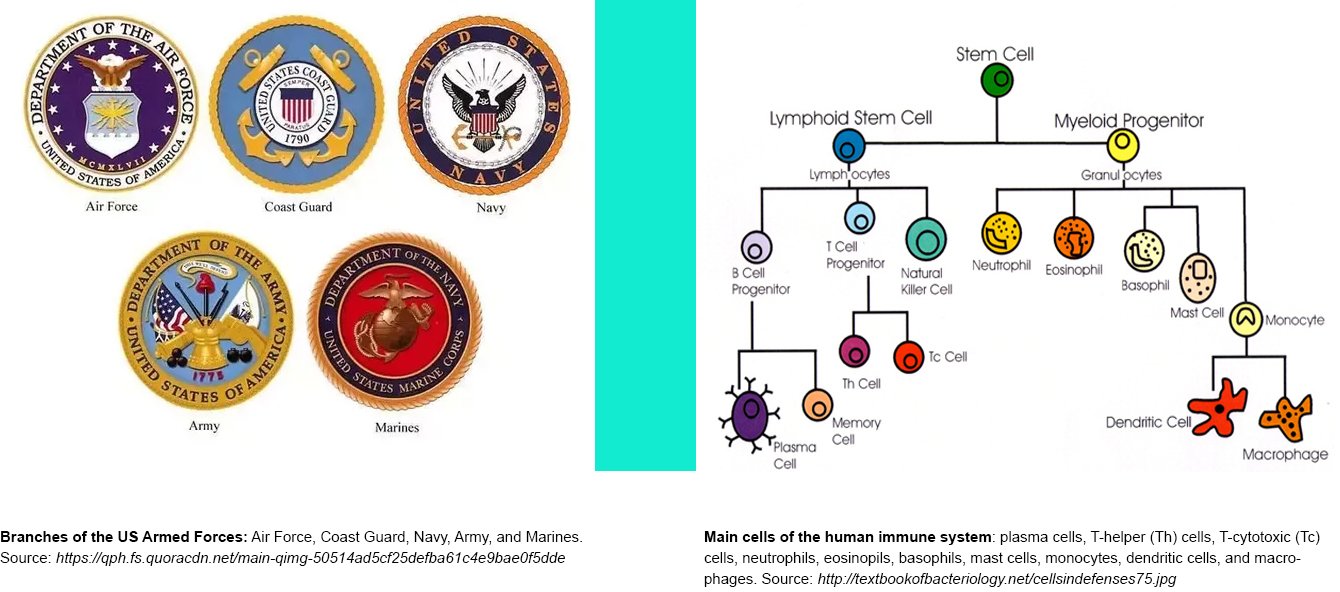Vaccination Saves Lives!
Not vaccinating is comparable to being a conspirator in a disease epidemic
Why vaccinate? Why not vaccinate? These may be common questions people ask themselves when reading, listening, or talking about vaccines among friends, family, co-workers or even listening on different media outlets (including social media). Before answering these questions and how not vaccinating is comparable to conspiring in a crime, it is essential to understand what is a vaccine and which of the many fancy systems in your human body it helps work – the immune system. Note that the human body is full of fancy systems – for example, how is the brain (just a bit longer than a human hand) able to control the whole human body 50 to 100 times larger?
One of these fancy systems is the human immune system, which includes the cells found in your blood that we often refer to them as white blood cells. These cells are analogous to the different branches, for example, of the US Armed Forces (see below). Note that the US Armed Forces also employ intelligence services – the human immune system also operates intelligence services.
Analogous to patrolling functions of the US Armed Forces to protect the security of the US, cells of the immune system including neutrophils, eosinophils, basophils, dendritic cells, and macrophages are patrolling the human body 24/7 for the presence of foreign substances in the blood and within tissues. Comparable to how the US Armed Forces have branches and sub-branches that are first responders during a conflict, neutrophils, eosinophils, basophils, dendritic cells, and macrophages are among the first responders and very active during infection with the purpose of eliminating the invading microbe or foreign substance. It is worth mentioning that among this first response (mainly dendritic cells and macrophages), there are cells stationed at portals of entry (i.e., regions that can serve for germs entering our bodies) – upper respiratory tract (including our mouth, nose), skin, among others.
Collaboration is essential for the immune system to employ its function of protecting your body and fighting pathogens during infection. This feature is no different than during a war conflict – defeating an enemy needs collaboration between the various branches of the armed forces. Some of the first responder cells, such as dendritic cells and macrophages, are capable of capturing a microbe or foreign substance and sending signals to the T cells (including the T-helper and T-cytotoxic) to get activated in order to enhance the response of the first responder cells.
As mentioned above, the intelligence service is an essential asset of the armed forces – gathering information to have an advantage against the enemy. Well, don’t be surprised because the human immune system also has intelligence capabilities – remembering a microbe or foreign substance that previously invaded our bodies. During the same instance that dendritic cells and macrophages tell T cells to enhance the response of the first responder cells, the T cells will immediately recognize the microbe or foreign substance during a subsequence encounter. If the pathogen that the T cells memorized gains access to the human body again, the response of the first responder cells will be much faster than the first time and also more efficient because the T cells will help the first responders be more efficient in response to the pathogen. This is where vaccines are essential – they simulate a primary encounter of a microbe or foreign substance without causing an infection. Basically, your immune system is already prepared for any battle against a pathogen or foreign even without having to deal with an infection on the first place. A vaccine can accomplish this mission by exposing your immune system to a component that is unique to the pathogen or foreign system (or a non-infectious version of a pathogen) and letting the immune system engage in all the steps to be prepared for a subsequent encounter.
Therefore, refusing the benefits of vaccination is basically like conspiring during a disease epidemic – if we are sick, we can make other people around us sick. If we are not sick (because our immune system was already prepared to face the pathogen after being vaccinated), those around us will not be sick whey they get in contact with us. Being vaccinated also help us against days lost of work (or school in the case of children), saves us money (health treatment is not free), and frees us from the stress and mental discomfort when suffering a disease.
Author: Dr. Félix E. Rivera-Mariani
About the author: Dr. Félix E. Rivera-Mariani is the principal investigator of the Respiratory and Immunology Project and Immunology Research Team.

